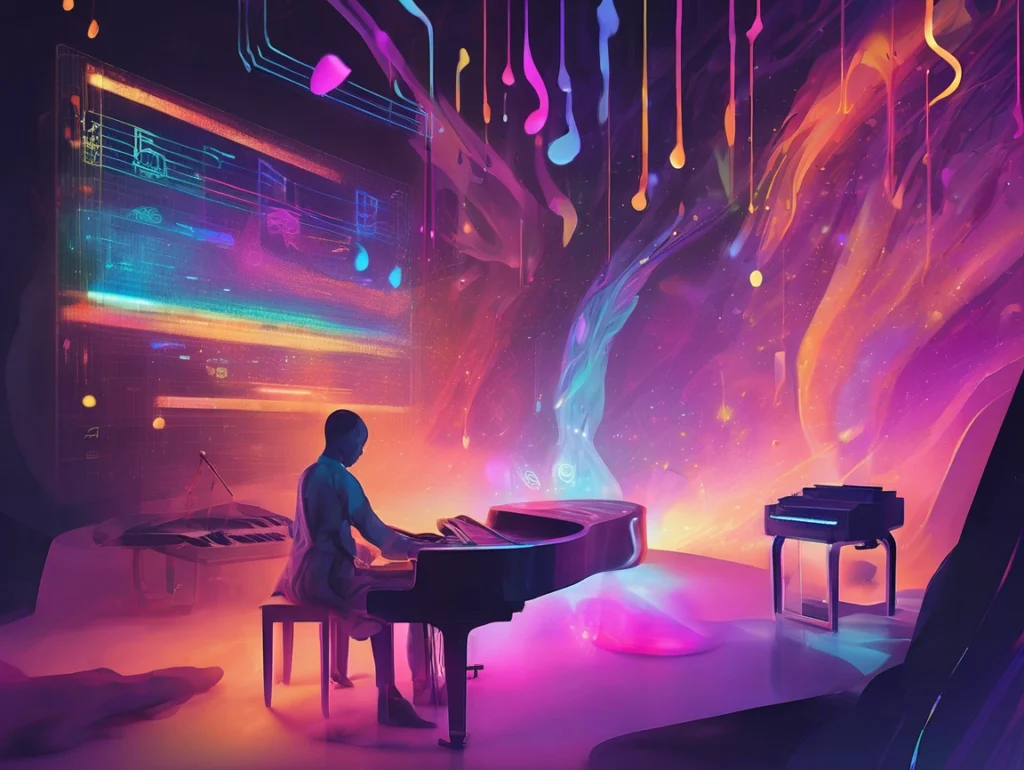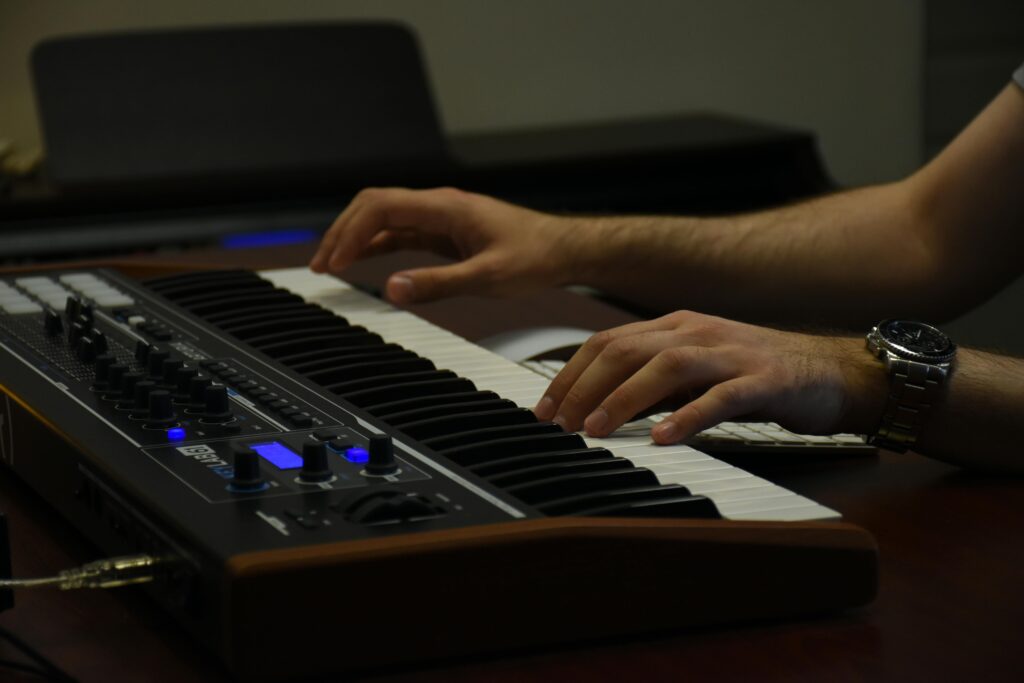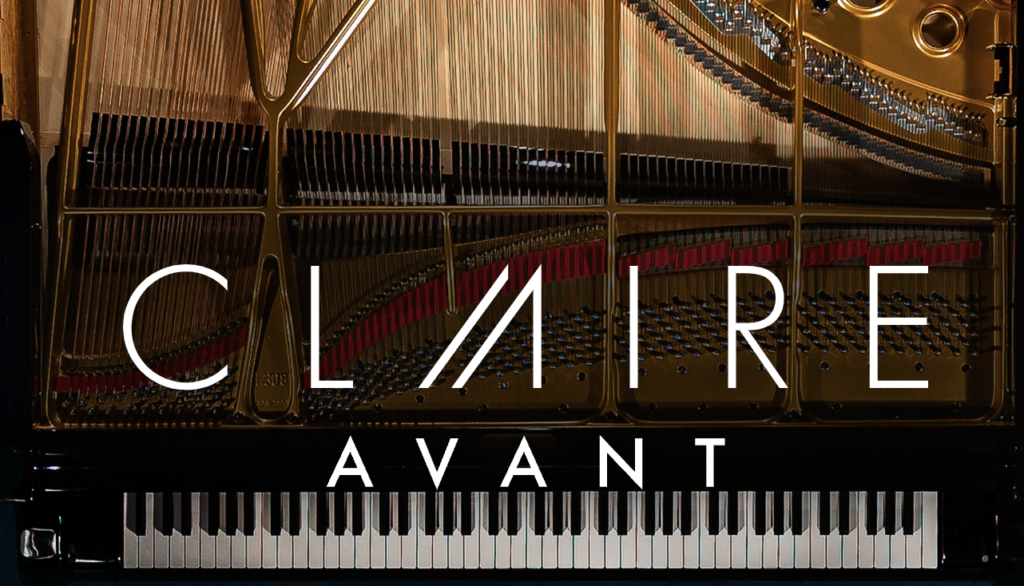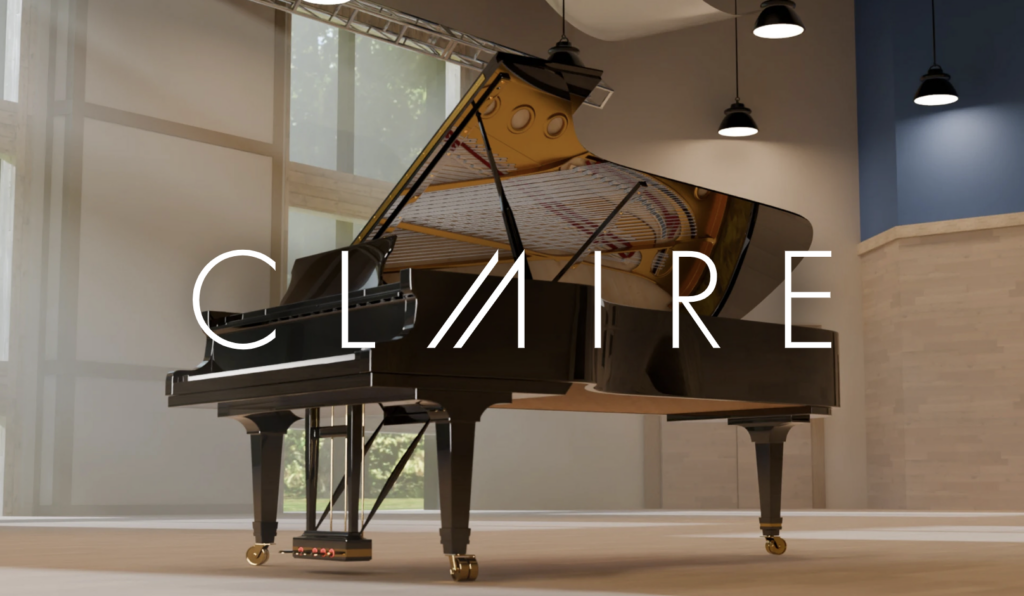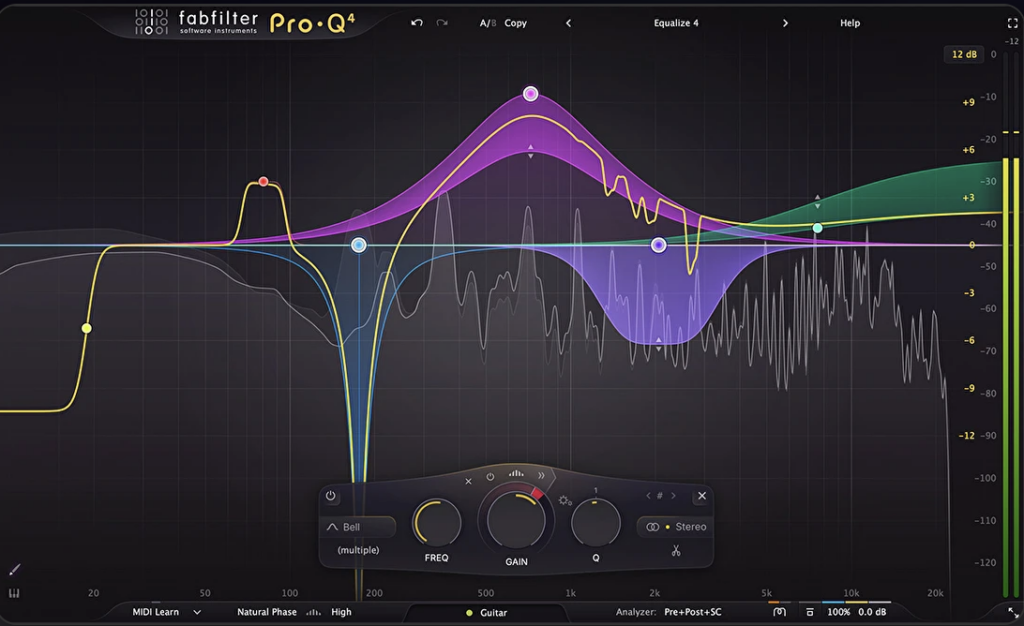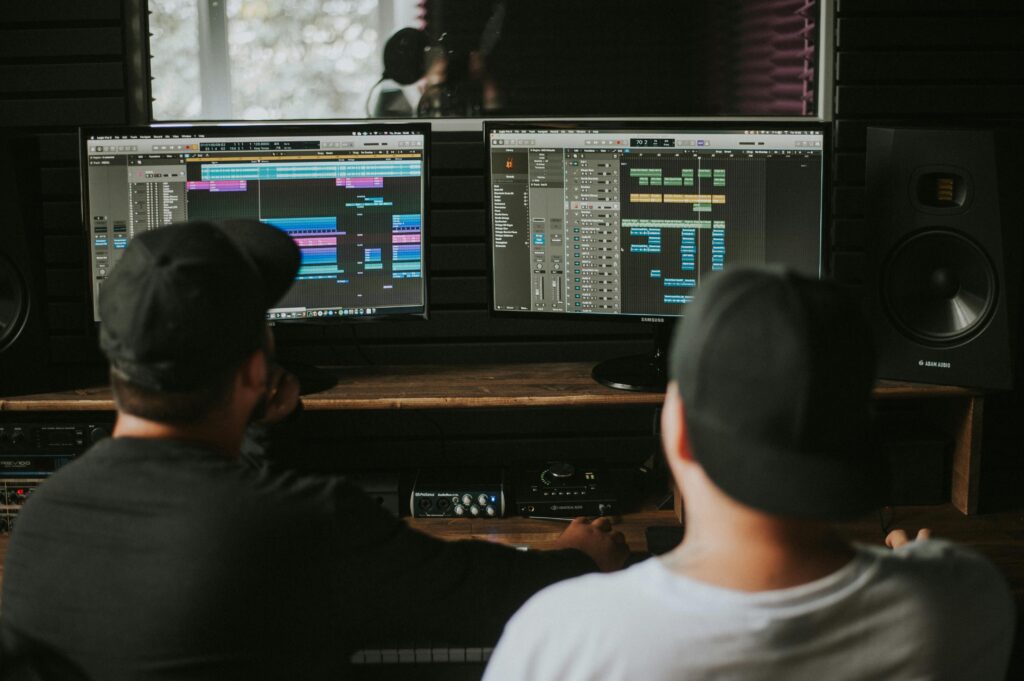Introduction:
Imagine creating a full-length musical composition in minutes—without touching an instrument. Sounds like science fiction? Not anymore! AI music generators are transforming the way music is produced, offering tools that can compose, arrange, and even master tracks with just a few clicks.
Did you know that over 65% of music producers are now using AI tools to streamline their creative process? Whether you’re a seasoned composer or a budding producer, AI music creation software can be your secret weapon for innovation and efficiency.
In this guide, we’ll explore the best AI music generators in 2025, how they work, and how you can leverage them to take your music production to the next level. Let’s get started!
1. What is an AI Music Generator?
AI music generators are software tools that use artificial intelligence to create music. These tools leverage machine learning algorithms and neural networks to analyze vast amounts of musical data, learn patterns, and generate original compositions.
How Do AI Music Tools Work?
- Data Input: AI music generators are trained on massive datasets of existing music, spanning genres, styles, and instruments.
- Pattern Recognition: The AI identifies patterns in melody, harmony, rhythm, and structure.
- Music Generation: Using these patterns, the AI creates new compositions that mimic human creativity.
- Customization: Many tools allow users to input parameters like genre, mood, tempo, and instrumentation to tailor the output.
Examples of AI-Generated Music in the Industry
AI-generated music is already making waves in the industry. For instance:
- Pop Music: Artists like Taryn Southern have released albums composed entirely with AI tools.
- Film Scores: AI has been used to create soundtracks for short films and video games.
- Video Games: AI-generated music adapts dynamically to gameplay, enhancing the player experience.
AI music generators are not here to replace human composers but to augment their creativity and efficiency.
2. Benefits of Using AI Music Creation Software
AI music generators offer a host of benefits for music producers and composers. Here’s why you should consider incorporating them into your workflow:
Save Time on Composition and Arrangement
- AI tools can generate full tracks or sections of music in minutes, saving hours of manual work.
- Perfect for meeting tight deadlines or creating quick demos.
Overcome Creative Blocks
- Stuck on a melody or chord progression? AI can provide fresh ideas to spark your creativity.
- Use AI-generated loops or motifs as a starting point for your compositions.
Experiment with New Genres and Styles
- AI tools allow you to explore genres outside your comfort zone, from classical to EDM.
- Experiment with unique combinations of instruments and styles.
Affordable Alternative to Hiring Musicians
- AI-generated music can replace the need for session musicians or composers, reducing costs.
- Ideal for indie artists or small-budget projects.
AI for Mixing and Mastering
- Using AI software and plugins for mixing and mastering can boost your productivity like crazy!
- I would recommend that you take a look at iZotope Ozone 11. It is by far some of the best AI mastering tools out there, and it gives you a great starting point for mixing and mastering by analyzing your song. Read my full review of iZotope Ozone 11!
3. Top AI Music Generators in 2025
Here are the best AI music generators available in 2025, each with its unique features and strengths. Whether you’re a music producer, composer, content creator, or hobbyist, there’s an AI tool tailored for you. Click the links to explore their websites and start creating today!
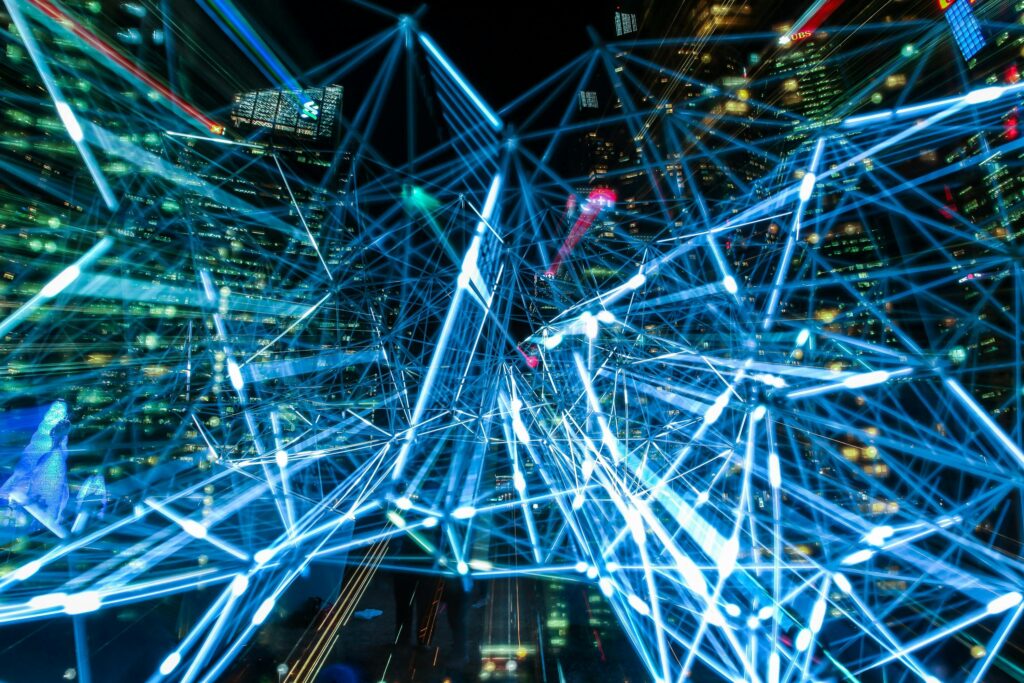
1. Amper Music
- Best For: Beginners, content creators, and filmmakers.
- Key Features:
- Intuitive interface for quick music creation.
- Customizable tracks based on mood, genre, and tempo.
- Seamless integration with DAWs like Ableton and Logic Pro.
- Website: Amper Music
2. AIVA (Artificial Intelligence Virtual Artist)
- Best For: Classical composers, film scorers, and game developers.
- Key Features:
- Specializes in orchestral and cinematic music.
- Allows users to upload MIDI files for AI refinement.
- Offers royalty-free licensing for commercial use.
- Website: AIVA
3. Splash Pro
- Best For: EDM and pop producers, beatmakers, and DJs.
- Key Features:
- AI-powered beat and melody generation.
- Real-time collaboration features for team projects.
- Extensive library of loops and samples.
- Website: Splash Pro
4. Soundraw
- Best For: Content creators, YouTubers, and podcasters.
- Key Features:
- Generates tracks based on mood and activity (e.g., workout, relaxation).
- Fully customizable arrangements for unique soundtracks.
- Royalty-free music for personal and commercial use.
- Website: Soundraw
5. OpenAI’s MuseNet
- Best For: Experimental musicians and multi-genre composers.
- Key Features:
- Generates music in over 15 genres, from jazz to hip-hop.
- Combines multiple instruments and styles in a single composition.
- Free to use for non-commercial projects.
- Website: OpenAI MuseNet
6. Ecrett Music
- Best For: Video producers, marketers, and social media creators.
- Key Features:
- Generates music tailored to video content (e.g., vlogs, ads, tutorials).
- Simple drag-and-drop interface for quick edits.
- Affordable subscription plans for small businesses.
- Website: Ecrett Music
7. Boomy
- Best For: Indie artists, hobbyists, and aspiring musicians.
- Key Features:
- Creates full songs in under 30 seconds.
- Allows users to release tracks on streaming platforms.
- AI-powered mastering and mixing for professional sound.
- Website: Boomy
8. LANDR
- Best For: Professional producers, mastering engineers, and indie artists.
- Key Features:
- AI-powered mastering engine for polished, radio-ready tracks.
- Includes a suite of production tools (e.g., samples, loops, plugins).
- Subscription plans for all budgets.
- Website: LANDR
9. Melodrive
- Best For: Game developers, VR creators, and interactive media producers.
- Key Features:
- Generates music that adapts to user interactions (e.g., video games, VR).
- Real-time music generation for dynamic experiences.
- Customizable emotional parameters (e.g., happy, sad, intense).
- Website: Melodrive
10. Jukedeck (Now part of TikTok)
- Best For: Social media creators, TikTokers, and short-form video producers.
- Key Features:
- Generates short, catchy tracks for videos.
- Integration with TikTok and other social platforms.
- Easy-to-use interface for non-musicians.
- Website: Jukedeck
11. Humtap
- Best For: Mobile musicians, songwriters, and on-the-go creators.
- Key Features:
- AI-powered music creation app for iOS and Android.
- Generates tracks based on user input (e.g., humming, tapping).
- Ideal for sketching ideas or creating full songs anywhere.
- Website: Humtap
4. How to Choose the Right AI Music Generator for Your Needs
With so many options available, how do you pick the best AI music generator for your needs? Here are some factors to consider:
Genre and Style Preferences
- Choose a tool that specializes in the genres you work with most often.
Ease of Use and DAW Integration
- Look for tools with user-friendly interfaces and compatibility with your preferred DAW.
Licensing and Royalty-Free Options
- Ensure the tool offers the right licensing for your projects, especially if you plan to use the music commercially.
Advanced Customization Features
- Opt for tools that allow you to tweak melodies, harmonies, and arrangements to suit your vision.
Budget and Subscription Plans
- Consider your budget and choose a tool with pricing plans that fit your needs.
5. Practical Tips for Using AI-Generated Music Tools
To get the most out of AI music generators, follow these tips:
Use AI as a Starting Point
- AI-generated music is a tool, not a replacement for creativity. Use it to inspire or enhance your work.
Combine AI with Live Instruments
- Blend AI-generated tracks with live recordings for a unique, human touch.
Experiment with Demos and Backing Tracks
- Use AI tools to create quick demos or backing tracks for your projects.
Stay Updated on New Features
- AI music software is constantly evolving. Keep an eye out for updates and new tools.
Collaborate with Other Artists
- Use AI-generated music as a foundation for collaboration with other musicians or producers.
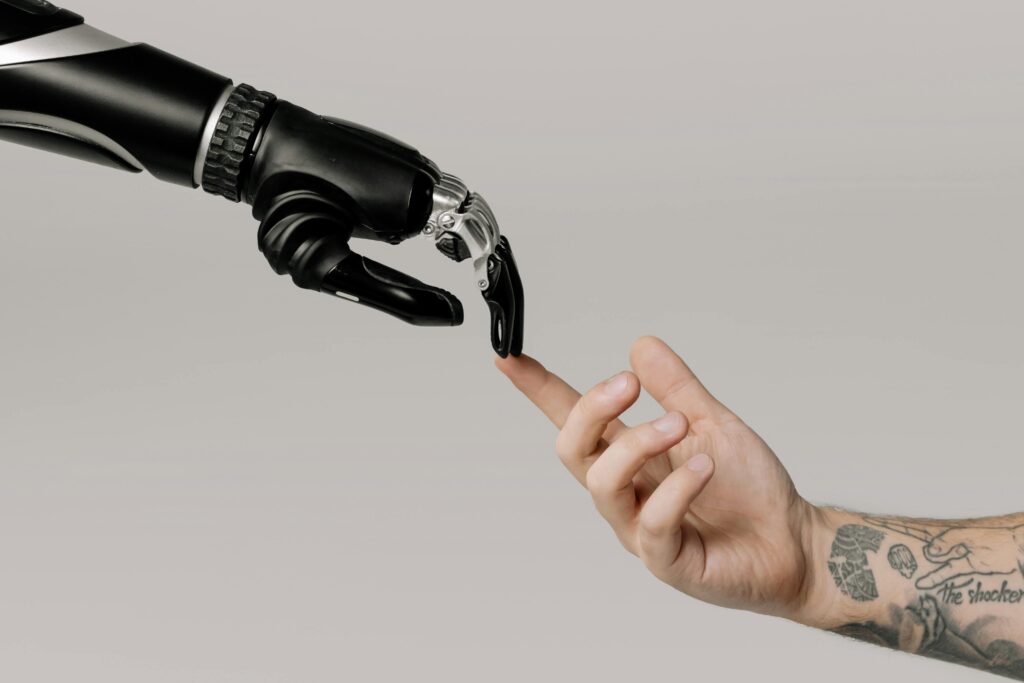
6. The Future of AI in Music Production
AI is poised to play an even bigger role in the music industry in the coming years. Here’s what to expect:
Shaping the Future of Music
- AI will continue to democratize music production, making it accessible to more people.
- New tools will emerge for mastering, mixing, and sound design.
Ethical Considerations
- Will AI replace human composers? Unlikely. Instead, it will serve as a collaborative tool.
- Questions around copyright and ownership of AI-generated music will need to be addressed.
Emerging Trends in 2025 and Beyond
- AI-Powered Collaboration: Tools that enable real-time collaboration between human and AI composers.
- Dynamic Music: AI-generated music that adapts to listener preferences or environmental factors.
- Voice Synthesis: AI tools that can replicate vocal styles for singers and voice actors.
- AI in Live Performances: AI tools that generate music in real-time during live shows.
- AI for Music Education: Tools that teach music theory and composition using AI.
Conclusion:
AI music generators are no longer a futuristic concept—they’re here, and they’re revolutionizing the way music is created. From saving time to sparking creativity, these tools offer endless possibilities for music producers and composers.
Whether you’re looking to experiment with new sounds or streamline your workflow, there’s an AI music creation software out there for you. So, why not give it a try? Explore the tools we’ve highlighted, and let AI take your music to the next level in 2025.
Ready to dive in? Start creating with AI today and see where your creativity takes you!
Recommended Books
Here’s a curated list of 3-5 books that are highly relevant to the topic of AI music generators, music production, and the intersection of artificial intelligence and creativity. These books will provide deeper insights into the technology, its applications, and its impact on the music industry.
1. “The Creativity Code: How AI Is Learning to Write, Paint, and Think” by Marcus du Sautoy
- Why Read It?
This book explores how AI is transforming creative fields, including music, art, and literature. Marcus du Sautoy, a renowned mathematician, delves into the algorithms behind AI creativity and discusses whether machines can truly be creative. - Key Takeaways:
- How AI learns patterns and generates art.
- The ethical implications of AI in creative industries.
- Real-world examples of AI-generated music and art.
- Perfect For:
Anyone interested in the philosophical and technical aspects of AI creativity.
2. “Artificial Intelligence and Music Ecosystem” by Martin Clancy
- Why Read It?
This book focuses specifically on the impact of AI on the music industry, covering topics like AI-generated music, copyright issues, and the future of music production. - Key Takeaways:
- How AI is changing the roles of musicians, producers, and composers.
- Case studies of AI music tools and their applications.
- Legal and ethical challenges in AI-generated music.
- Perfect For:
Music producers, composers, and industry professionals looking to understand AI’s role in music.
3. “The Future of Music: Manifesto for the Digital Music Revolution” by David Kusek and Gerd Leonhard
- Why Read It?
While not exclusively about AI, this book provides a forward-looking perspective on how technology, including AI, is reshaping the music industry. It’s a great resource for understanding the broader context of AI music tools. - Key Takeaways:
- How digital tools are democratizing music creation.
- The role of AI in music distribution and consumption.
- Predictions for the future of music technology.
- Perfect For:
Musicians and producers who want to understand the evolving landscape of music technology.
Bonus Recommendation:
“This Is Your Brain on Music: The Science of a Human Obsession” by Daniel J. Levitin
- Why Read It?
While not about AI, this book explores the science of how humans perceive and create music. Understanding these principles can help you better appreciate how AI mimics human creativity. - Key Takeaways:
- The psychology and neuroscience of music.
- How the brain processes melody, rhythm, and harmony.
- Insights into what makes music emotionally impactful.
- Perfect For:
Anyone curious about the connection between human creativity and AI-generated music.

